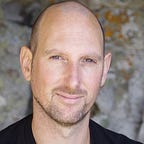The Root of Wisdom
Part 3 of ‘Surrender to the Mystery: On Knowing and the Power of Not-Knowing’
Part 1: https://medium.com/illumination-curated/surrender-to-the-mystery-a0cc003a3380
Part 2: https://medium.com/illumination-curated/a-world-of-perspective-99b22fdd9b8a
Some words from The Wise
When I was studying philosophy I often heard a famous saying attributed to Socrates, which could be paraphrased as ‘the only thing I know is that I know nothing.’
Back then, Socrates seemed to me to have been something of an ass. I chalked up his vaunted reputation to a commonly appearing form of philosophical anti-rationalism, which seemed to me to make a virtue of ignorance
The quote just annoyed me. Here’s this ancient Greek fellow, who didn’t think he knew anything, being upheld to me as the epitome of wisdom.
I thought we should just take him at his word, abandon him to his ignorance and spend time with better thinkers.
His words bugged me, because I was obsessed with knowing.
Knowledge is power, or so the cliché goes and, in my youth, I was under the mostly-mistaken impression that knowledge would grant me some control of my life and help me to engineer my highest destiny.
By the time I was pursuing my masters, I had already spent fifteen years or so cloistered in my room, devouring any work, on any subject, that would help me piece together the puzzle of life.
I found Socrates’s denial of my holy grail to be borderline offensive.
A sense of security
I was only too aware of the fact that I was still ignorant of so much of life, but I desperately wanted to believe I was making progress.
On one level, my quest for knowledge was important and necessary. On another it was a psychological safety-blanket.
Feeling like I had the answers was a form of psychological control. It stopped me feeling helpless in the face of all the unknowns that were bearing down on me, especially my not-knowing how my life might ‘be made’ to unfold in a way that would align to my hopes and dreams.
Of course life was living me, so I couldn’t actually make it do anything, but it took time to learn that all I could really do was align with my true nature and follow the flow of my destiny, as it unfolded through me.
At that time, however, I felt like if I studied all I could about the nature of reality and human life, I would thereby empower myself and have the best possible basis from which to make choices and forge my way forward.
There was obviously some truth in that assumption but, in retrospect, there was also a lot of confusion about how life works.
After spending all that time immersed in education and personal learning, I had felt certain that I knew a lot.
Yet, in our weird modern way, I had been shut up in academic institutions for the vast majority of that time and I had yet to truly test myself in the arena of Life.
Still, for many years thereafter, I continued to study everything I could and, with word and deed, tested the bounds of my reality, as I sought to grow my capacity to impact my world.
Today, that earlier self seems super-young to me, but time is a great teacher and not shy to humble a person, which has been one of its’ many gifts to me.
Now, later in life, I have come to appreciate the limits inherent in our capacity for knowing and accept that, in his simple statement, Socrates genuinely was expressing the ultimate seed of all wisdom, which quintessentially lies within the realm of not-knowing.
Wisdom begins with Wonder
It is only when we can look out into the many facets of life and feel awe at its vast immensity, at the sheer impossibility of its existence, and ours, that we are in a position to approach its mysteries and embark on a true journey of discovery.
To know that you don’t know is the root of wisdom, for only from that open place can one, with the innocence of a child, surrender to experience and fully receive the world.
Wisdom is the great feminine (receptive) attribute that complements the masculine (active) quality of knowing.
To know is set and fixed. Knowledge is the basis of action. If we don’t have some knowledge we would not know what to do, or how to begin doing it.
To be wise is to be open, receptive and responsive. It keeps us tuned into the limitations in our perspective, it allows the awareness that successful action occurs through process. If we are not responsive to the process, not aware of the continual flow of information that is constantly feeding back to us, as we act on our assumptions and beliefs, then we will never grow through the process, or attain its highest outcome.
Wisdom is knowing what we don’t know and knowing still that there is infinitely more that we don’t know we don’t know. Wisdom is taking this awareness deep into our cells and letting it guide our behavior and decisions. It keeps us from any sense of superiority or judgement and so keeps us receptive to truth, wherever it may arise.
At this point in my life, I would go so far as to say that not only does wisdom lie within the domain of not-knowing, but that the ultimate meaning and purpose of Life lies there too and that learning to rest in our not-knowing is a celestial key to an entirely upgraded human experience.
Much more can be said on this subject, and I will do so in later essays in this series.
Part 4 to follow soonish…
